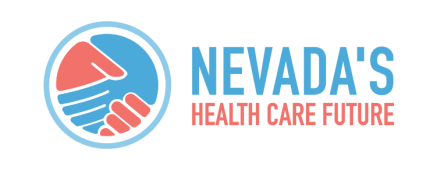Nevada’s Health Care Future Submits Comment Letter to Federal Agency on Nevada Public Option
CARSON CITY, Nev. – Nevada’s Health Care Future (NVHCF) submitted a public comment today to the Centers for Medicare & Medicaid Services during its public comment period on the state’s revised 1332 waiver application to implement the Nevada Public Option.
Read NVHCF’s comment below:
Dear Secretary Yellen and Secretary Becerra,
We appreciate the opportunity to comment on the State of Nevada’s Section 1332 State Innovation Waiver application to implement a Nevada Public Option program. Nevada’s Health Care Future (NVHCF) is committed to increasing access to affordable, high-quality health care for all Nevadans by championing solutions that build on what is working in our health care system today while fixing what isn’t.
We urge you to deny Nevada’s application for a 1332 waiver, as the facts show that a Public Option will decrease access to affordable, high-quality care that residents across the state rely on. While some advocates for the Public Option point to Nevada’s proposed market stabilization program, evidence indicates it will be unsuccessful in fixing the structural flaws at the core of SB 420, the bill creating the Public Option program, and Nevada’s 1332 waiver application. Nevadans will still experience the damaging effects of this flawed system.
Research conducted by subject matter experts clearly shows that a Public Option program will harm Nevadans. NVHCF engaged Wakely Actuarial Consulting to perform an actuarial analysis of SB 420 in advance of the state’s revised 1332 waiver application. Wakely’s experts determined the Public Option would likely worsen Nevada’s already significant health care provider shortage. The state is currently ranked 48th nationally for primary care physicians per capita and further deterioration would have devastating consequences. Additionally, the program would also put financial hardships on hospitals, further threatening access to care for patients in need.
Wakely also found a Public Option could reduce competition in the state’s marketplace by forcing insurance providers to exit the market while deterring new ones from doing business in the state. We have seen this scenario play out in Colorado, one of the two states that have implemented a Public Option program. Four health insurers announced they would fully or partially exit the Colorado market, forcing thousands of residents to find new plans and even change doctors.
In addition to harming competition, premiums have continued to rise in Colorado. In fact, individual market premiums rose an average of 10 percent this year after a similar double-digit increase last year. Into its second year, the vast majority of service areas in Colorado have had premium savings of less than one percent. CMS data shows that Colorado’s reinsurance program is the overwhelming source for much of the premium savings experienced in the state.
The State of Washington also implemented a state government-controlled Public Option, but with very little success. Washington’s Public Option has done practically nothing to lower the uninsured rate despite promises from advocates. After three years, only four of Washington State’s 39 counties have Public Option plans that have met the state’s premium targets for bronze-level plans; only one county has met the target for silver-level plans.
It is not a coincidence that the Public Option has failed in every state where it has been tried and there is no evidence to suggest Nevada would fare differently. Just as it has played out in Washington and Colorado, a Nevada Public Option would threaten health care choice, affordability and access for patients.
SB 420 was passed hastily into law and is significantly flawed. Despite the state submitting a revised waiver application, it seems the waiver application still relies on many misguided assumptions that could lead to harmful consequences for Nevada patients and their families:
- The state has proposed in its revised application putting into place a market stabilization program that implements and relies upon the Public Option. Tethering the state’s proposed reinsurance program to the creation of the Public Option is a risky strategy, especially with the facts suggesting this is not a viable model for financing the reinsurance program.
- Rather than decreasing administrative costs, the many new requirements and mandates for payers will increase administrative costs. Worse, any reduction in carriers’ required risk margins could pose a major threat to consumer choice and competition in the state, completely counter to the objectives of SB 420.
- With many hospitals and other providers already at or near 100 percent of Medicare fee-for-service (FFS) reimbursement rates – and without any meaningful drivers in the policy to lower the cost of care – there is a slim chance carriers will be able to meet the state’s premium reduction targets.
- The assumption that the creation of Public Option plans will help lower non-Public Option premiums is deeply misguided – particularly after its failure to do so in both Colorado and Washington.
- The degree to which this waiver ties the procurement process for Medicaid contracts directly to insurance carriers’ submission of Public Option plans for Nevada’s individual market could destabilize the Medicaid program.
Nevada’s Health Care Future raised many of the same concerns in our March 2024 comment letter, but in reviewing the state’s updated waiver application, we are disappointed to see that none of the core concerns we highlighted were addressed by Nevada’s Department of Health and Human Services.
Simply put, Nevada’s revised 1332 waiver application fails to address the fundamental flaws contained in SB 420’s Public Option provision. Advocates for the Public Option have pointed to the projected impact in reducing the uninsured population by 2,200, but that impact is minimal at best and is far outweighed by the concerning projections from Wakely Consulting Group regarding decreased access to affordable care. In fact, increasing access to coverage and care is more likely to be achieved through private coverage and existing public programs coming together to build on what is working in our current system.
Nevada’s Health Care Future respectfully urges you to deny Nevada’s Section 1332 State Innovation Waiver application to protect Nevadans from the harmful effects of a Public Option program that has failed in every state that has attempted to implement one.
Our focus has always been and will remain building on what is working in health care to improve access to affordable, high-quality care rather than starting over with one-size-fits-all, unproven systems. We will continue to support health care policy proposals that align with this goal. NVHCF appreciates the opportunity share our concern regarding SB 420 and Nevada’s Section 1332 State Innovation Waiver application.

